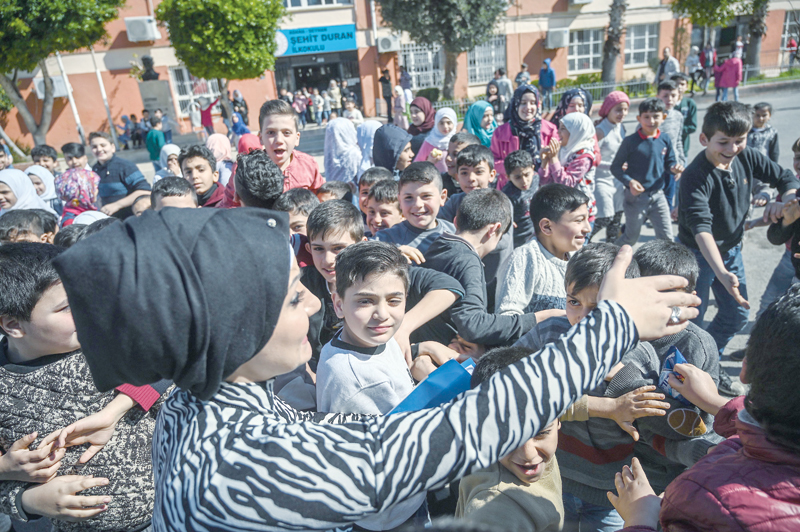

ADANA: Like many students of her age, 16-year-old refugee Fatmeh dreams of becoming a doctor. And a modest monthly sum of less than 10 euros could make all the difference. Originally from the Syrian city of Aleppo, the teenager has been living in Adana in southern Turkey for six years with her father and three small brothers.
To help feed the family, the father sells Syrian pastries that she helps make at home.
“I missed the first term of school to help my dad look after my three little brothers and prepare the pastries,” she said between classes at public school in Adana. Fatmeh is one of 460,000 refugees in Turkey — most of them Syrian — whose family benefits from monthly supplements aimed at keeping school-age children in class rather than out working.
The money — 35-50 Turkish lira for boys, and 40-60 lira for girls ($6-$11/5-9 euros) — is part of the Conditional Cash Transfer for Education programme, funded by international sources like the European Union and managed by the UN children’s fund UNICEF, the Red Cross and the Turkish authorities.
Meagre sums
If the sums seem meagre, it can be a boon for poor Syrian families who often live on basic aid and informal work, especially those with several school-age children.
The amount is similar to that given to Turkish families by the social services so as to avoid complaints that Syrian refugees get preferential treatment, says Mathias Eick, a spokesman for the EU’s humanitarian operations.
“We’ve assigned 86 million euros to the programme to date,” he said.
According to Unicef data, around 600,000 school-age Syrian children are in education in Turkey while another 400,000 are not. Hundreds, perhaps thousands of students who have officially signed up for classes end up skipping school to work and help their families survive.
At Fatmeh’s school in Adana, teachers listed absent students and contacted their parents to persuade them to let their children return, with the programme as an incentive.
“The teachers in school were able to persuade my father by explaining how the aid could help,” she said. “It wasn’t hard because he always pushed me to go to school, but it was me who helped out in the house.” —AFP
Oman Observer is now on the WhatsApp channel. Click here



